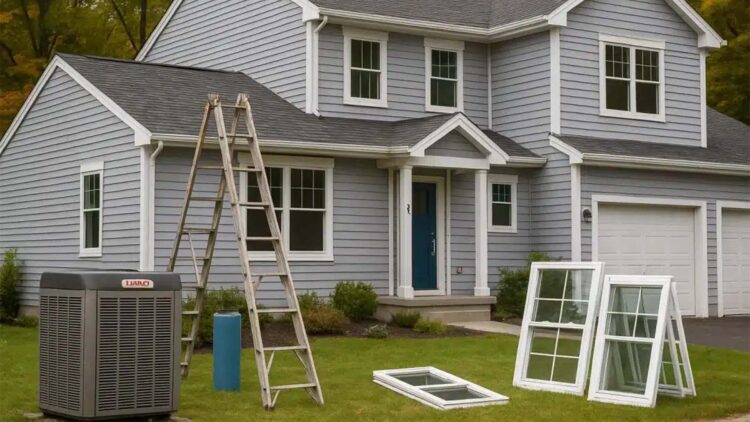In spite of the President’s recent comments denying climate change, sustainability continues to be a major motivation in the U.S. So much that homeowners may be eligible for a 30% tax credit for their environmental consciousness.
Yes, if you made your house a little greener in the previous years or you’re thinking about it, you might be rewarded, thanks to the Inflation Reduction Act.
By installing Energy Star windows or heat pumps, switching to energy-efficient water heaters, or adding insulation, you can lower your utility bills, improve the comfort of your house, and get a 30% tax credit.
Over time, you can save even more money by making an investment in solar energy or other renewable energy sources.
As the future calls for smarter and more efficient houses, all of these initiatives support sustainability, clean energy, and the green transition.
Sustainability and 30% tax credit
The tax credit, gives you the opportinity to get a 30% refund of what you spent in power upgrades for your home (including labor and materials).
How much can you get? For qualified home upgrades, you can receive up to $1,200 annually. For major improvements like water heaters, biomass stoves, or heat pumps, you can receive up to $2,000 annually.
These improvements not only benefit the environment, but they also lower your energy costs and improve the comfort of your house.
Which projects are eligible?
- Insulation and air sealing: Keeps your house cooler in the summer and warmer in the winter.
- Energy Star windows and doors: Reduce drafts and improve the efficiency of your heating and cooling systems.
- Heat pumps and high-efficiency heating or cooling systems: Reduceyour monthly expenses by using less electricity.
- Efficient water heaters: heat water faster and use less energy.
- Home energy audits: Identify the power-wasting areas in your house and provide solutions.
In addition to your 30% tax credit, you may be eligible for the Residential Clean Energy Credit if you want to install solar power, small wind turbines, or battery storage. This credit can help you save even more money and reduce your taxes while supporting renewable energy and energy conservation.
How to claim your credit correctly
When you file your taxes, you must submit Form 5695 to the IRS in order to claim your 30% tax credit. Save all of your documentation, including Energy Star product labels, receipts, and any manufacturer certifications for the items you install.
Here’s what to remember:
- Verify that your modifications respect the IRS energy regulations.
- Don’t throw away any labels or receipts; save them.
- Renovation projects need to be completed and in use before December 31, 2025.
- Form 5695 (IRS) has to be filed
There isn’t much time to wait because the program ends in December 2025. It’s best to begin making improvements as soon as you can. Prioritize the upgrades that have the greatest impact, like installing a water heater or heat pump before the deadline, installing Energy Star windows, or adding insulation.
A smart way to save money
To enjoy the benefits, you don’t have to remodel your entire home. Little adjustments will do. Homeowners can improve their homes with clean energy, renewable energy, and long-term sustainability with the help of the Inflation Reduction Act.
If you have finished your home renovations, what are you waiting for? file your application, but do it fast because you only have until the end of the year.
With little time before the deadline, pressure goes up, but if you can afford the upgrades before the end of 2025, you could transform smart home work into actual tax savings and long-term energy savings by submitting Form 5695 to the IRS. You’ll reduce expenses, increase the value of your house, and benefit the environment.

